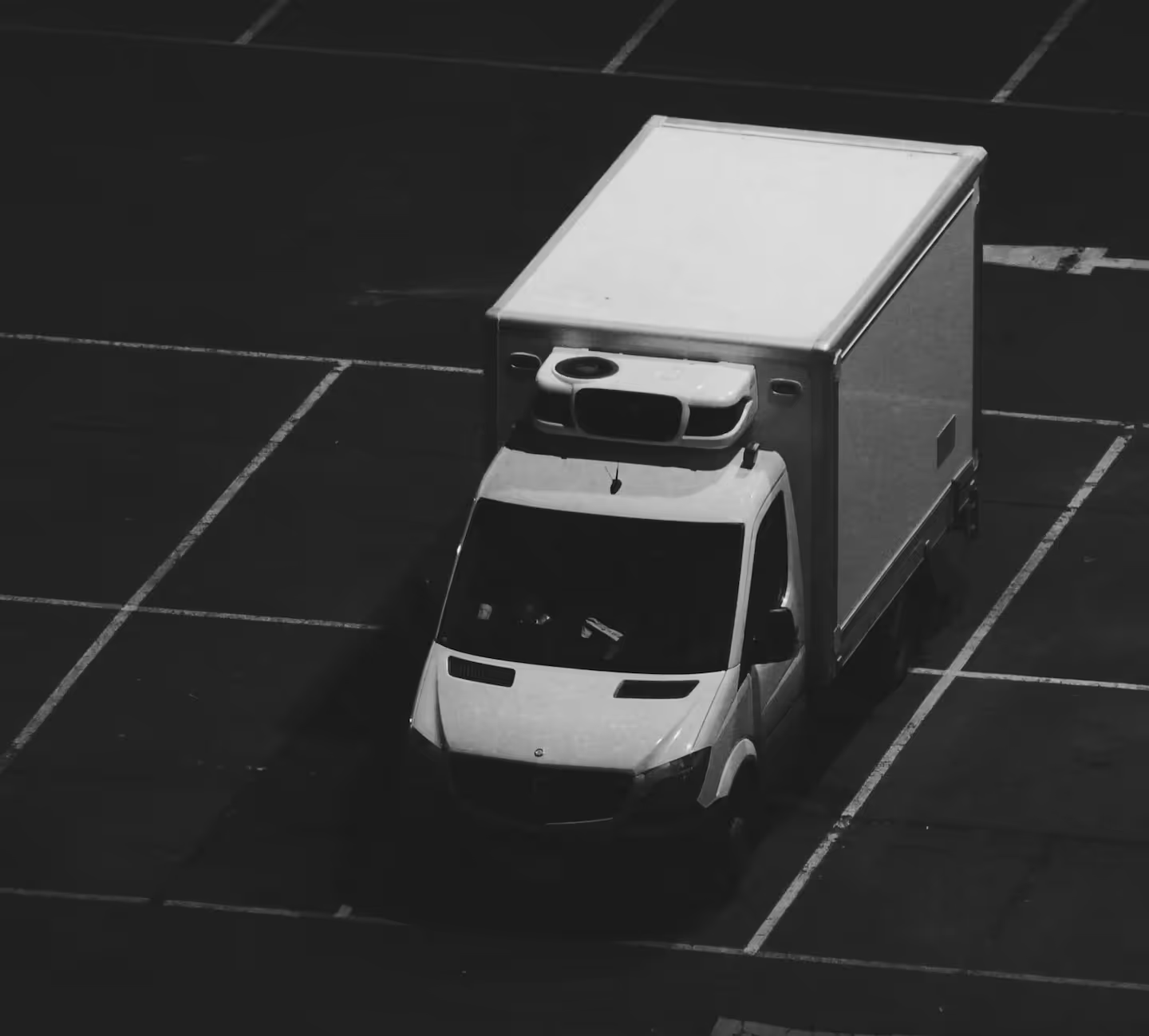LGV C1 Driver Training in Sussex
Get qualified to drive vehicles up to 7.5 tonnes - ideal for delivery drivers, paramedics, tradespeople and more.

Who Needs a C1 Licence?
An LGV C1 licence allows you to drive vehicles between 3.5 and 7.5 tonnes - a crucial step for a range of industries and public services. You’ll need a C1 licence if you plan to:
Drive ambulances or patient transport vehicles
Work as a local or regional delivery driver
Transport tools and equipment for construction or utility jobs
Operate large horseboxes, removals vans or trade vehicles over 3.5T
Not sure if C1 is the right fit?

Ready to Book Your Assessment Drive?
If you’ve secured your provisional licence and passed your theory and hazard perception tests, you’re ready to take the next step.
Book your assessment drive with us to see how many days of training you’ll need to pass your test with confidence. We’ll guide you through every step - no time or money wasted.

"The HGV course at Sussex Driver Training was exceptional. The instructors were knowledgeable and supportive, making the learning experience enjoyable and effective."

C1 Licence FAQs
Everything you need to know before getting behind the wheel.
You can drive vehicles weighing between 3.5 and 7.5 tonnes (GVW). These include medium sized vans, ambulances, horseboxes, delivery trucks and specialist trade vehicles. You can also tow a trailer up to 750kg. For heavier trailers, you'll need a C1+E licence.
If you're using your C1 licence for paid work, you must complete your Driver CPC by passing:
- Module 2: Case Study Theory
- Module 4: Practical Demonstration
⚠ Driving professionally without a valid CPC can result in a £1,000 fine.
For personal use (e.g. campervans or horseboxes) a CPC is not required.
Yes - you can train and test directly for C1+E without first passing C1. As long as you’ve applied for the correct provisional and passed your theory tests, you’re eligible.
Most drivers complete training in 2-4 days, depending on experience. Training is typically delivered in 4 hour sessions and your test is booked at the end. An assessment drive can help us tailor your course length.
Before you begin practical training, you’ll need to:
- Book and pass a driver medical (D4 form)
- Apply for your provisional using D2/D4 forms
- Pass Module 1a (Theory) and 1b (Hazard Perception)
- If driving professionally, also pass Module 2 (CPC Case Study)
You can book theory tests at a DVSA centre. We’re happy to help if you need guidance.
Yes - the C1 theory test is more in depth and covers LGV specific rules, even if you’re only doing C1. Expect questions on:
- European driver hours
- Vehicle dimensions & weights
- Braking distances for large vehicles
- When wide loads require escorts
- Road signs specific to goods vehicles
We recommend using the DVSA Theory Test Kit app or an LGV specific revision book to prepare properly.
You must be at least 18 years old, and have a valid car licence (Category B).
Yes, if you passed your car test before 1 January 1997, you likely have “grandfather rights” for Category C1. Check the back of your licence for the C1 code under entitlements.
Note: If you plan to drive commercially, you’ll still need CPC training.
Yes, and it’s a smart idea. If you’re planning to drive larger vehicles for work or upsize to bigger motorhomes in the future, ticking C or C+E now means you won’t need another medical later. This saves time and money if you up skill down the line.
Yes it is, when you receive your provisional licence back, the back of the card won’t list your provisional entitlements. To check they’ve been added, visit the DVLA Driver Record and log in. It should list C1 (and any others you applied for) as provisional.
Many drivers are surprised to learn that the C1 test feels a lot like preparing to drive a lorry - just in a smaller vehicle. It’s designed to test your awareness, control and confidence with a larger, heavier van or truck. The practical test includes:
- A reversing exercise (off road manoeuvre)
- A road drive with various traffic conditions
- Vehicle safety questions
To pass, you can't have any serious or dangerous faults (majors) and have 15 or fewer driving faults (minors). We’ll help you master reversing, safety checks, mirror checks and positioning - so you’ll be fully prepared for test day.
Still have questions?
Get in touch with us today
